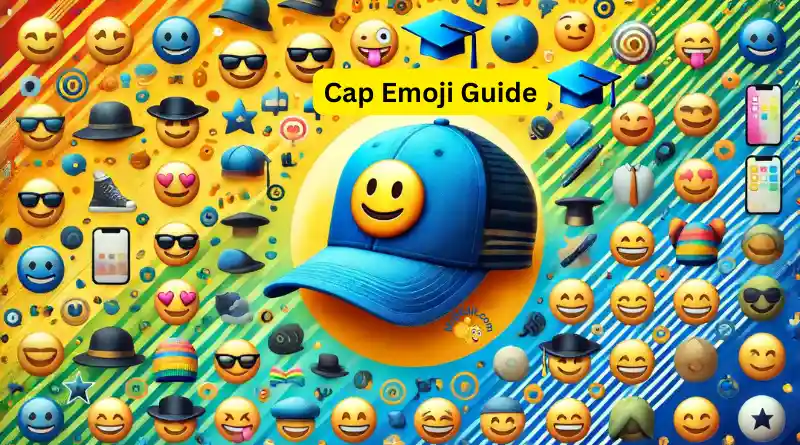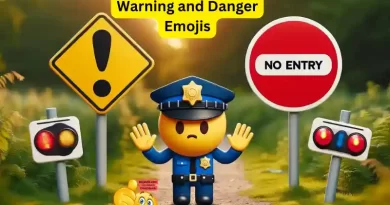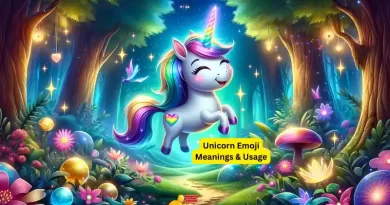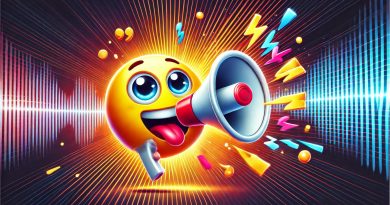Cap Emoji Usage: From Graduation to “Capping”
From the iconic blue baseball cap to the trendy emojis that adorn our digital conversations, caps have woven themselves into the fabric of our daily lives. Whether you’re shielding your eyes from the sun, making a fashion statement, or emphasizing honesty in a text, caps and their emoji counterparts play a multifaceted role. In this article, we’ll dive into the evolution of caps, their cultural significance, and how the cap emoji has become a symbol in the digital age. Let’s explore how a simple accessory turned emoji captures both practicality and playful expression in our online interactions.
The Evolution of Caps and Hats 🧢
Caps, with their unique ability to blend practicality with style, have a rich history dating back centuries. The term “cap” broadly encompasses a variety of headwear. It ranges from the simple billed cap worn for sports to the ornate graduation cap worn when symbolizing academic achievement.
The Versatile Cap Emoji 🧢
In the digital age, emojis have become a universal language, expressing emotions, ideas, and even fashion choices. The 🧢 emoji, often used to denote a cap or hat. It is a versatile symbol that may signify casual style, a sporty demeanor, or simply a playful addition to a message. Its popularity stems from its straightforward representation of any type of headwear, appealing to people across genders and ages.
The Iconic Baseball Cap 🧢
It is one of the popular sport emojis. Aso it is one of the most popular types of caps to wear now is the baseball cap. Characterized by its rounded crown and stiff peak (billed cap), the baseball cap has transcended its origins in sports to become a staple in casual attire worldwide. Its simple yet functional design makes it a go-to choice for both sun protection and making a fashion statement.
The Graduation Cap 🎓
On the other end of the spectrum lies the graduation cap, also known as the mortarboard cap. This square-shaped hat with a flat, stiff crown and a tassel hanging from its center has become synonymous with academic achievement and commencement ceremonies. Worn by students to mark the culmination of their educational journey, the graduation cap symbolizes years of hard work and dedication.
Caps and Hats Across Cultures and Styles
Caps and hats come in a myriad of styles, colors, and materials, each serving a distinct purpose and reflecting cultural influences. Whether it’s the flat cap worn traditionally in Ireland and England or the wide-brimmed sun hat popular in warmer climates, headwear protects us from the elements and expresses our personal style and cultural heritage.
The Role of Color and Design 🎨
Colors and designs play a big role in the world of caps and hats. While neutral shades like black, navy, and gray are timeless choices for their versatility, bold colors such as red, blue, and green add a pop of personality to any outfit. Patterns, logos, and embroidered motifs further personalize the accessories, turning them into statements of individuality.
From Celebration to Shade: Cap Emoji’s Double Meaning
The billed cap emoji transcends its visual representation. It’s become entangled with internet slang, specifically the term “cap,” which means “to lie” or “an exaggeration of fact.” That informal usage has become quite popular, particularly on social media platforms.
Here’s how the emoji plays into online lingo:
-
Calling Out a Bluff: A single billed cap emoji sent in response to a statement could be a playful way of accusing someone of lying or exaggerating. It’s a more lighthearted alternative to directly saying “that’s a lie.”
-
Emphasizing Truth: Believe it or not, the billed cap emoji could also be used to emphasize honesty! The phrase “no cap” (often written with the emoji ) has become a way to assure someone that you’re telling the truth and not exaggerating.
The emoji double meaning may be a bit confusing at first, but understanding the context is key. If you’re unsure, it’s always best to err on the side of caution and avoid negatively using the emoji.
Caps in Pop Culture and Everyday Life
Caps and hats have permeated popular culture, appearing in movies, music videos, and celebrity fashion lines. They embody a sense of casual coolness while also serving practical purposes, such as shielding the eyes from the sun or keeping the head warm in chilly weather. From streetwear to high fashion runways, caps continue to evolve in style and function, adapting to the ever-changing tastes of consumers.
Frequently Asked Questions about Caps and Emojis
The 🧢 emoji generally represents a casual cap or hat. It may be used to indicate someone wearing a cap or hat, a statement of casual style, or simply to add a playful element to a message.
The 🎩 emoji represents a top hat, typically associated with formal occasions, magicians, or people of classic style. It is characterized by its tall, cylindrical crown and flat brim.
Related emojis include the graduation cap (🎓), top hat (🎩), and various other hat emojis that represent different types of headwear.
The cap emoji was approved as part of Unicode 10.0 in 2017 and added to Emoji 5.0 the same year.
The cap emoji is often used in internet slang to call out someone for lying (e.g., “That’s cap”) or to emphasize truthfulness (e.g., “No cap”).






